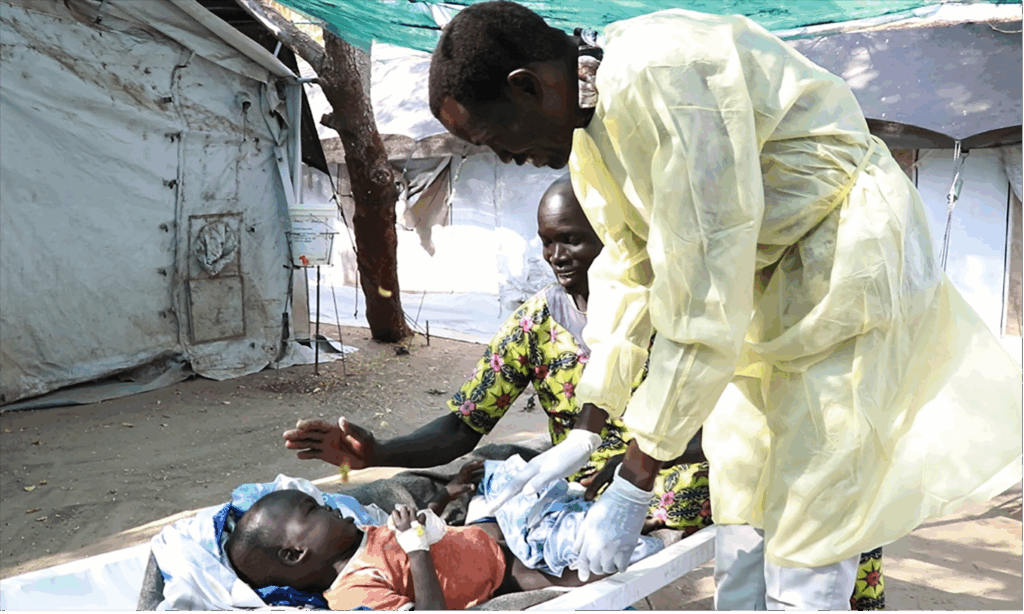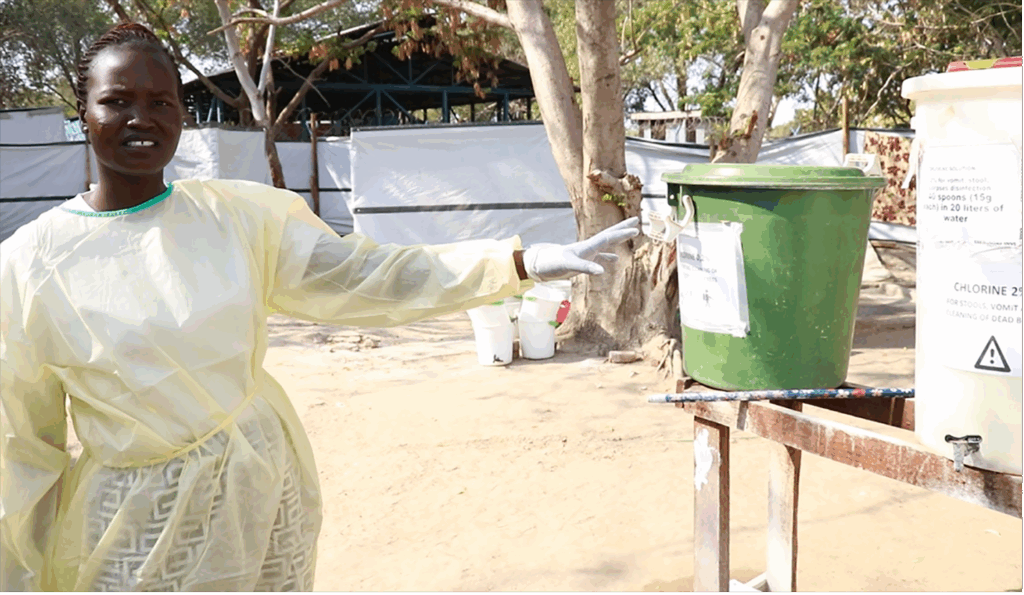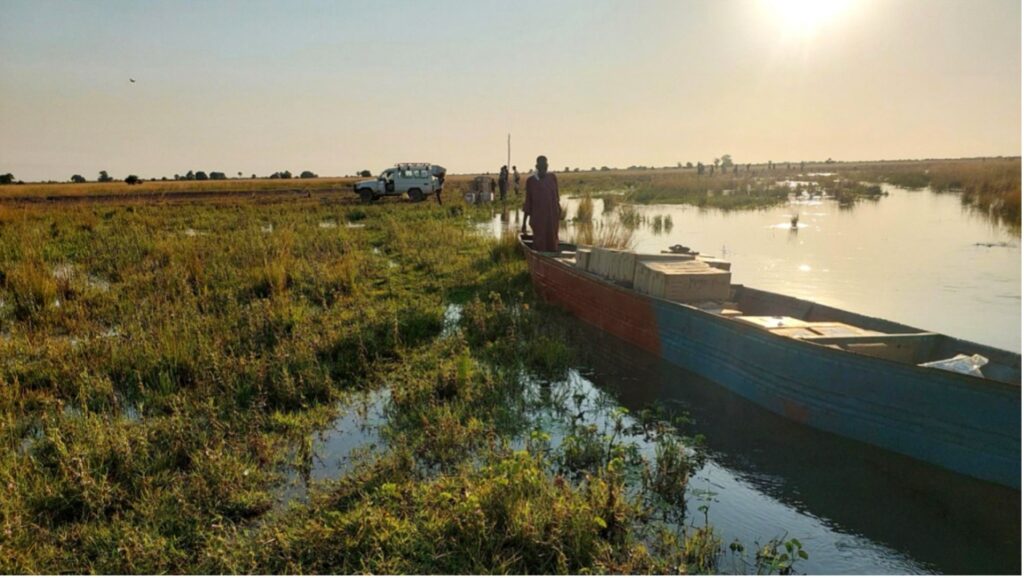South Sudan is grappling with the impacts of climate change. These challenges have led to widespread displacement and the exacerbation of disease outbreaks, notably the ongoing cholera crisis in Unity State. This underscores the urgent need for resilient health systems.

The effects of climate change are becoming increasingly evident in South Sudan, where flooding and rising temperatures have devastated infrastructure and hindered access to healthcare.
Poor road access and isolated settlements make it difficult to deliver essential medical supplies, especially to hard-to-reach areas. These conditions create fertile ground for the spread of climate-sensitive diseases such as cholera.
Accelerated Outbreak
The cholera response started during a period of flooding, which resulted in mass displacement and overcrowding in communities receiving internally displaced persons, accelerating the spread of the disease.
Watch this documentary about Cordaid’s cholera response in Unity State:
The outbreak overwhelmed existing health structures, which were already operating with limited resources, and was further compounded by insecurity that restricted access to services. Consequently, there were high mortality rates among the population due to late reporting.
Additionally, the outbreak coincided with the withdrawal of key donors who supported various services, including water, sanitation, and hygiene activities, as well as specific health services targeting the displaced population.
As of the latest data, 19,602 suspected cholera cases and 364 deaths have been recorded. Rubkona County remains the most severely affected area, with 12,981 cases and 196 deaths. Overall, South Sudan has recorded over 70,000 cholera cases and more than 1,300 deaths.
Cordaid is committed to building a climate-resilient health system that can withstand the shocks of a fragile environment.
Pre-Existing Gaps
Before the outbreak, water, sanitation, and hygiene services in Unity State were already critically inadequate. Most of the population, particularly in Rubkona County, relied on contaminated floodwater for daily use. Access to clean drinking water remains a challenge.

While humanitarian partners focus primarily on camps for displaced people, host communities continue to suffer from a lack of proper sanitation infrastructure, and the prevalence of open defecation poses significant health risks.
Integrated Cholera Response
Cordaid, in close collaboration with the Ministry of Health and other stakeholders, has been at the forefront of the cholera response.
- At Bentiu State Hospital and Rubkona Primary Health Care Centre, cholera treatment units have been established. These facilities are central to case management and surveillance, accounting for the majority of the reported cases in the region.
- Six water facilities and a cholera treatment unit have been set up at Mankien Primary Health Care Centre.
- A cholera vaccination campaign has been organised.
- In partnership with Children Aid South Sudan, six latrines in schools and densely populated areas have been constructed to improve sanitation.
- The community has been reached and engaged through risk communication and activities.
- Through a partnership with UNICEF, Doctors Without Borders, Children Aid South Sudan, and Africa Development Aid, essential sanitation and hygiene items have been distributed among the population.
- Supplies for infection prevention and control at cholera treatment sites have been provided, including chlorine, hand washing soap, hand sanitisers, buckets for hand washing, and tents.
- In partnership with the County Health Departments, Cordaid supported radio talk shows and direct engagement with community leaders to raise awareness about cholera prevention and early treatment.
Climate-Resilient Health Systems
Cordaid is committed to building a climate-resilient health system that can withstand the shocks of a fragile environment. Floods have cut off access routes, and Cordaid’s recent delivery of medical supplies was made possible through innovative logistics. The communities used traditional canoes and even carried medical commodities on foot to reach the health facilities.

While the cholera outbreak has subsided in some counties, the onset of the rainy season, combined with poor hygiene conditions, is a serious threat to the progress made. Sustained collaboration is urgently needed to safeguard these gains. This includes continued rollout of cholera vaccination campaigns, improved access to safe water and sanitation, construction of latrines, and robust hygiene promotion efforts to raise community awareness and resilience.
